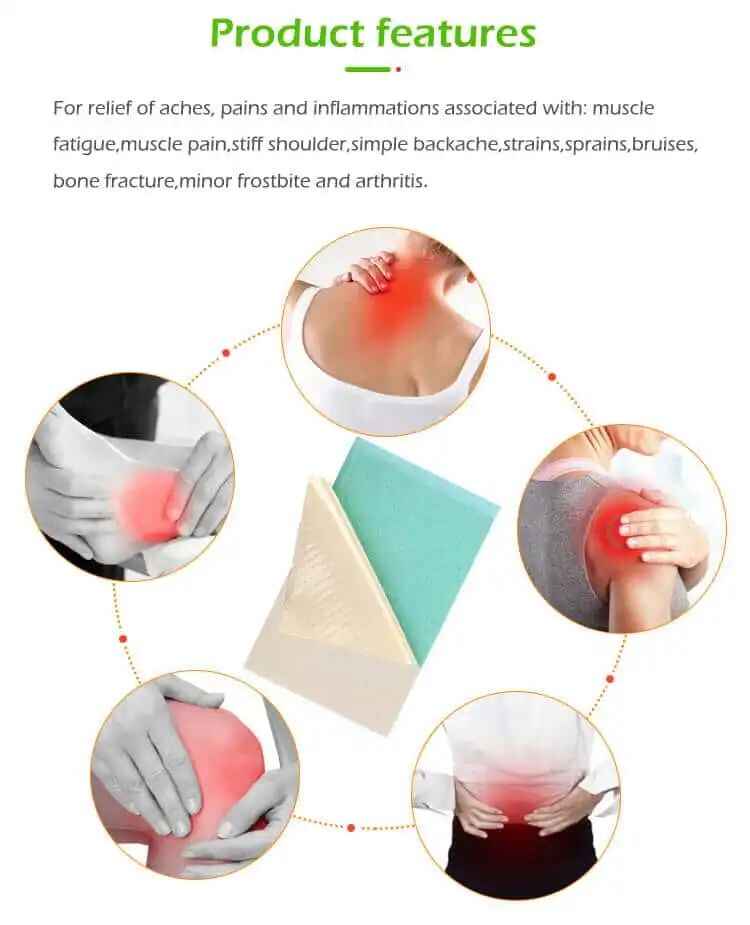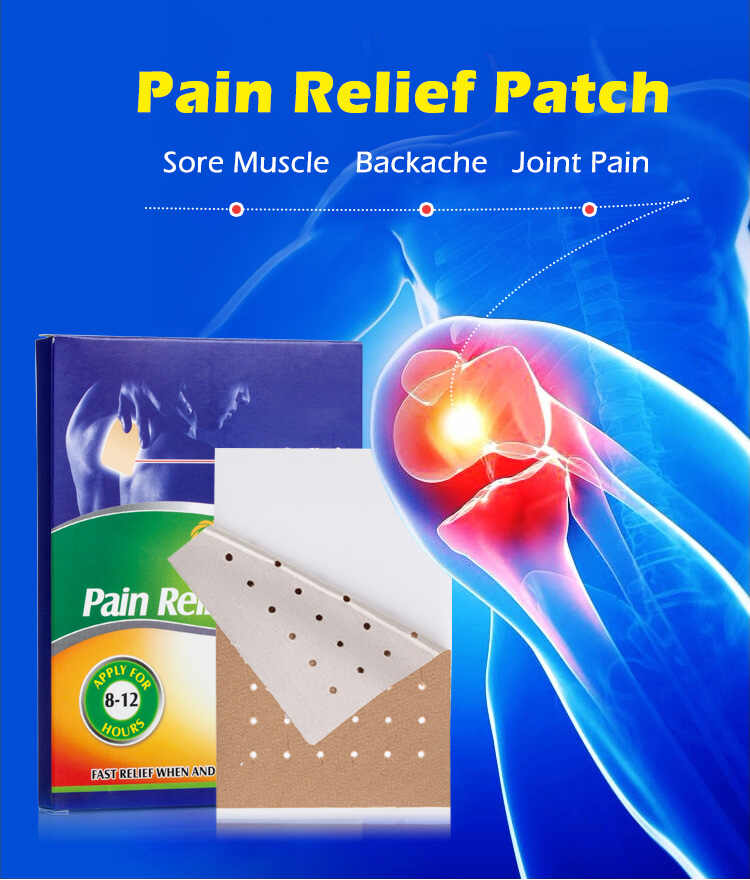What Regulations Apply to Sports Pain Patches in the U.S.? A Complete Guide for Manufacturers, OEMs, and Private Labels
In today’s fast-growing wellness market, Sports Pain Patches have become a staple for athletes, fitness enthusiasts, and individuals seeking non-invasive pain relief. Whether offered by a Sports Pain Patches Manufacturer, developed by a Sports Pain Patches OEM, or marketed under a Private Label Sports Pain Patches brand, compliance with U.S. regulations is essential.
This article explores in depth what regulations apply to Sports Pain Patches in the United States, how they affect your product development and marketing strategies, and what Custom Sports Pain Patches brands and Sports Pain Patches Suppliers must do to stay compliant. If you're entering or expanding in the U.S. pain relief market, this guide is your foundation for informed, regulation-ready decision-making.

1. Regulatory Overview: How Are Sports Pain Patches Classified?
In the U.S., the Food and Drug Administration (FDA) regulates Sports Pain Patches based on their active ingredients and intended use. These patches typically fall into one of two categories:
Over-the-Counter (OTC) Drug Products
Medical Devices (less common for pain patches)
Most Sports Pain Patches—especially those containing menthol, methyl salicylate, or capsaicin—are regulated as OTC topical analgesic drugs under the FDA’s Monograph System or New Drug Application (NDA) route.
2. FDA OTC Drug Monograph: The Most Common Pathway
The OTC Drug Monograph acts like a "recipe book" of pre-approved ingredients, doses, and labeling requirements.
Key Points for Compliance:
Permitted Active Ingredients: Menthol (up to 16%), Camphor (up to 11%), Methyl Salicylate (up to 30%)
Labeling Requirements: Drug facts, usage instructions, warnings, inactive ingredients
Good Manufacturing Practices (cGMP): Required under 21 CFR Part 211
If your Custom Sports Pain Patches follow the monograph’s guidelines, you do not need individual FDA approval, but you must comply with all labeling and manufacturing regulations.
Private Label Sports Pain Patches often rely on this route due to its cost-efficiency and quicker time to market.
3. New Drug Application (NDA): Required for Novel Formulations
If a Sports Pain Patches Manufacturer uses new combinations, delivery methods, or novel ingredients (e.g., CBD, lidocaine above 4%, or nano-formulations), an NDA or ANDA (Abbreviated NDA) is required.
NDA Requirements:
Clinical trial data
Safety and efficacy evaluations
Extensive documentation
FDA review and approval
This route is common for companies developing high-performance, innovative Custom Sports Pain Patches with proprietary technology.
4. FDA Registration Requirements for Sports Pain Patches OEMs and Manufacturers
Whether you are a Sports Pain Patches OEM or Private Label Sports Pain Patches Supplier, the following FDA compliance actions are mandatory:
Facility Registration:
Annual Drug Establishment Registration (per 21 CFR § 207.25)
Applies to manufacturers, packagers, labelers, and distributors
Drug Listing:
Each Sports Pain Patch product must be listed in the FDA’s National Drug Code (NDC) Directory
Important: This does not mean your product is "FDA approved"—just that it is registered and listed as required.
5. Labeling and Marketing Claims: Avoid FDA Red Flags
Improper marketing is one of the leading causes of FDA warning letters. Here's what Sports Pain Patches Suppliers and Private Label brands must avoid:
Prohibited Claims:
“Cures arthritis permanently”
“Works instantly for all types of chronic pain”
“FDA Approved” (unless an NDA was submitted and approved)
Required Labeling Elements:
Drug Facts Panel
Directions for Use
Warnings and Contraindications
Contact Information for Reporting Adverse Events
All of this must be compliant with 21 CFR Part 201 (Labeling Requirements for OTC Drugs).
6. Good Manufacturing Practices (GMP) and Quality Control
GMP compliance is non-negotiable for any Sports Pain Patches Manufacturer or OEM.
Key Areas:
Raw material verification
Batch production records
Stability testing
Sanitation and contamination control
Employee training documentation
Even Private Label Sports Pain Patches must be manufactured in FDA-registered and GMP-compliant facilities, even if the brand owner does not produce the patches themselves.
7. Adverse Event Reporting Obligations
Under the Federal Food, Drug, and Cosmetic Act (FDCA):
Serious adverse events must be reported to the FDA within 15 business days.
Applies to distributors and suppliers, not just manufacturers.
This means your Sports Pain Patches Supplier should have a post-market surveillance system in place to track consumer feedback and report issues promptly.
8. State-Level Compliance Considerations
In addition to federal regulations, some U.S. states may impose additional:
Sales tax collection laws
Environmental packaging requirements
Ingredient disclosure rules (e.g., California Prop 65)
A Sports Pain Patches OEM exporting to multiple states must be aware of local compliance standards to prevent recalls or fines.
9. Special Considerations for CBD or Herbal Sports Pain Patches
CBD-infused or herbal Custom Sports Pain Patches are currently in a regulatory gray area:
CBD: The FDA does not recognize CBD in OTC drugs. Marketing such products could lead to enforcement actions unless approved under an NDA.
Herbal Patches: Must comply with dietary supplement labeling or avoid drug-like claims if not under a monograph.
Tip: Work with a Sports Pain Patches Manufacturer that understands these nuances if you’re targeting the wellness or natural pain relief segment.
10. Why Regulatory Compliance Boosts Brand Credibility
For Private Label Sports Pain Patches, compliance is not just a legal obligation—it’s a brand differentiator.
Increases consumer trust
Reduces legal risks
Improves retail and e-commerce approval chances (e.g., Amazon, Walmart)
Sports Pain Patches Suppliers who offer transparency with regulatory documents, batch records, and certifications help brand owners achieve faster market penetration and long-term sustainability.
Conclusion: Compliance Is Non-Negotiable
Whether you are a Sports Pain Patches Manufacturer, OEM, or Private Label Supplier, understanding and adhering to U.S. regulations is essential for success. From monograph compliance to GMP production and accurate labeling, every step in the product lifecycle must be aligned with FDA requirements.
Custom Sports Pain Patches bring innovation to the table—but they also demand stricter oversight. Partner with experienced, compliant Sports Pain Patches OEMs to ensure that your products not only relieve pain—but also meet every regulatory expectation in the U.S. market.
Related Questions and Answers
Q1: Do I need FDA approval to sell Sports Pain Patches in the U.S.?
A1: If your product follows the OTC monograph, you don’t need pre-approval, but registration and compliance are still required.
Q2: Can a Private Label Sports Pain Patch use the term “FDA approved”?
A2: No, unless the product has undergone and passed an FDA New Drug Application (NDA).
Q3: Are there specific regulations for herbal or CBD-based Custom Sports Pain Patches?
A3: Yes, these products fall under separate scrutiny and often cannot be legally sold as OTC drugs without further approval.
Q4: What is required from a Sports Pain Patches OEM to meet FDA standards?
A4: Registration, cGMP compliance, accurate labeling, and listing all products in the FDA’s NDC database.
Q5: How can I ensure my Sports Pain Patches Supplier is compliant?
A5: Request their FDA registration number, GMP audit reports, and product listing confirmation before signing a contract.
By understanding the full scope of U.S. regulations, businesses can confidently launch and scale their Sports Pain Patches brand in one of the world's most lucrative wellness markets.






